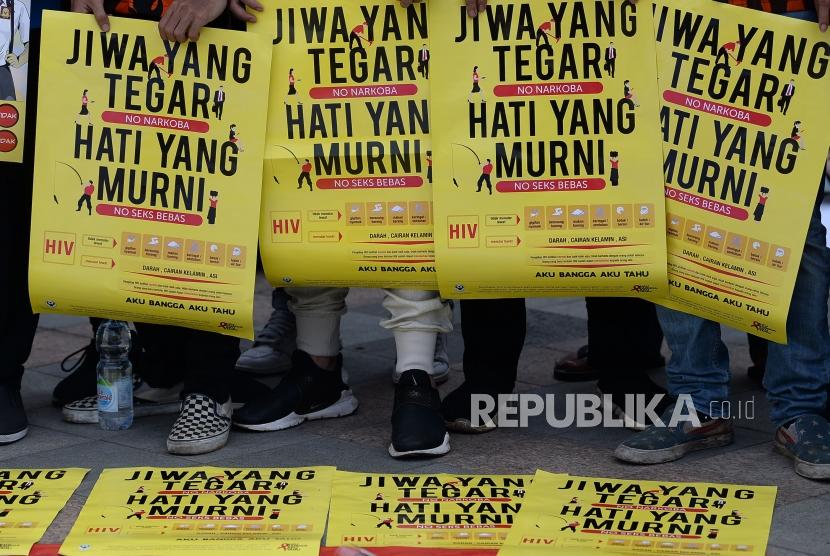In 2020, it is estimated that there are 37.7 million people living with HIV in the world
REPUBLIKA.CO.ID, JAKARTA — The Joint United Nations Program on HIV/AIDS (UNAIDS) issued a warning. If leaders fail to address inequality and the transformative steps needed to end AIDS, the world will continue to be stuck in the Covid-19 crisis and remain unprepared for the upcoming pandemic.
“There are still millions of people in the world who are left behind in the HIV response because of social inequality,” said UNAIDS Indonesia Country Director, Krittayawan Boonto.
“This is further exacerbated by the Covid-19 pandemic. Failure to improve the outcomes of both HIV prevention, testing and treatment services will result in 7.7 million deaths over this decade,” Krittayawan added.
The warning phrase appears in the latest report launched by UNAIDS in commemoration of World AIDS Day 1 Desember. Tahun ini mengambil tema “Unequal, unprepared, under threat: why bold action against inequalities is needed to end AIDS, stop Covid-19 and prepare for future pandemics”.
The launch of this report was carried out by UNAIDS Indonesia together with the Ministry of Health and the Positive Indonesia Network. Several countries, including those with the highest HIV rates, have made remarkable progress against AIDS. However, this achievement has been uneven, so globally there will still be 1.5 million new HIV infections in 2020, of which 31 percent occur among young people aged 15-24 years.
In 2020, it is estimated that there are 37.7 million people living with HIV in the world, 15 percent of them or 5.8 million people live in the Asia and Pacific region. This year marks 40 years for the first time AIDS cases have been reported. Since then, UNAIDS data shows there has been major progress, particularly in expanding access to treatment. By June 2021, 28.2 million people had accessed HIV treatment, up from 7.8 million in 2010.
Unfortunately, the coverage of HIV treatment in Indonesia has not yet reached the target. Director of Prevention and Control of Direct Infectious Diseases at the Ministry of Health, Dr. Siti Nadia Tarmizi, said that currently it is estimated that there are 543,100 people living with HIV in Indonesia. As of September 2021, 378,446 of them have been found.
However, among those living with HIV, only 149,833 taking antiretroviral (ARV) drugs and 48,588 people living with HIV experienced viral load suppression. “The number of new HIV infections in Indonesia has begun to decline, but is still at a fairly high level, namely 27,580 new infections in 2020,” he said.
According to Nadia, in the midst of the current Covid-19 pandemic, the issue of HIV AIDS should not go unnoticed so that Indonesia’s achievements will be even better. Covid-19 is weakening the AIDS response in many places. The number of HIV tests decreased evenly. Few people living with HIV begin treatment by 2020 in 40 of the 50 countries that report to UNAIDS.
– .


